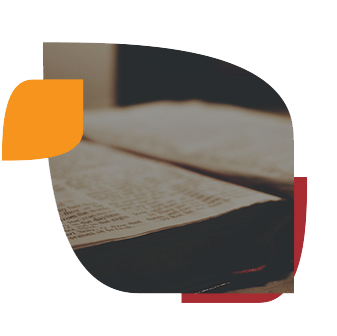
Staying with it: by Chris Chapman, Tutor in Christian Spirituality
Watching dramas and documentaries on the television I find myself thinking ‘you’re standing too close to each other’. In a short period of time we have begun to consider social distancing normal if not comfortable. Seeing someone coming as we walk along, we move to the other side of the street. We allow more time to do our shopping, knowing we will need to wait in a queue before we even begin.
There are other areas of life where what was once strange has become the usual. We no longer bounce out of a hasty breakfast into a daily commute. For almost all of us, if work has not gone it has certainly changed shape. Whilst for some, days are measured in long hours of isolation, for others the household is crowded, and it is difficult to find space.
There are more cars on the road than there were a week ago and they seem to be moving more quickly. Perhaps it’s a sign of growing unease. The first week or two might have had a sense of holiday about it – a break from routine. But now the reality of the new ‘normal’ is beginning to press in. We are meeting our restlessness and running short of ways to hide from the reality of the day.
The monastic tradition emphasizes the importance of staying with reality when familiar instincts impel us to try and move away. In the Rule of St. Benedict stability is the anchor for a life shaped towards greater self-knowledge, growth in openness to God and more generous living. Stability involves meeting what ‘is’ with courage and persistence. Rather than deny the presence within us of boredom, fear, loneliness or frustration we own their truth without drowning in them. We look at God, and allow God to look at us, with these feelings. They have something to teach us about who we are, what we fear, what we desire, and what we need at depth. Gazing at God allows us to own how we are without rejecting ourselves; for in God’s presence we find welcome and acceptance.
We are what we feel in the moment, and we are also more than what we feel. Paradoxically, facing what are sometimes painful feelings allows us to release them so that other realities can come into the centre: the beauty of a spring morning, an awareness of the qualities of someone we have long lived with without really taking in their gift, the taste of simple food, or the pleasure of being absorbed in an everyday task. These are real too. We have perhaps not stopped before to savour them. It is when we attempt to put away what we feel without owning it that our emotions skulk into dark, hidden corners, from where they continue to emerge to trouble us.
The limits on our freedom of movement can also begin to liberate us. The future moment – that our lives so often focus on – gives way to the present moment – a moment we can breathe in and live more fully.
In the balance of a day there are times to move away from the intensity of this experience. We can lose ourselves a while in watching television and thinking ‘those people are standing too close to each other’. We can play a game with others in the family or read a good book. Washing up the other day I put on some Van Morrison and swayed with the music, knowing no-one else would have to bear watching me. We all find our ways.
I write on Palm Sunday. There have been no processions to take part in, or palm crosses to hold, and it is still Palm Sunday. As we enter this Holy Week we stay with Jesus’ story and with our own, however it unfolds in the days to come.

